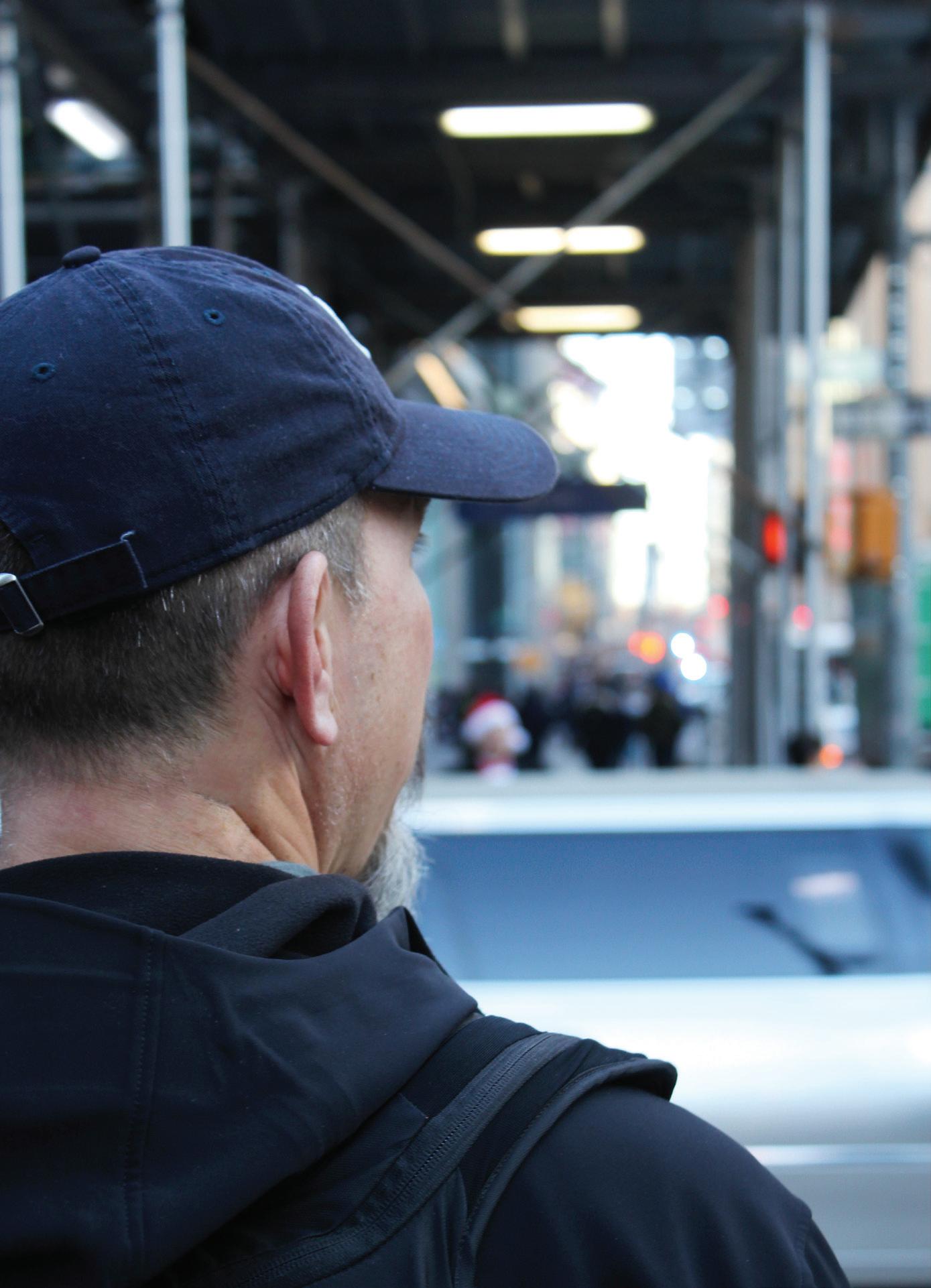
3 minute read
Private Security
SOMETHING VENTURED
A veteran of the $48.1 billion industry tells what it’s like protecting the rich and famous
Advertisement
By Ed McKinley
Here’s how a rookie mistake provided the founding principles for a thriving business. Todd Sheets was working as a cop in a medium-sized city in 2008 when his part-time gig in private security took him to a beautiful hotel in Brazil. He was assigned to guard an A-list tech CEO, and he and his client were assigned adjoining rooms.
Everything seemed quiet early one morning, so Sheets decided to squeeze in a workout on a treadmill in the hotel basement. He was jogging on the machine when his squawk box blurted his name and summoned him to the command center.
It seemed that Sheets had left his BlackBerry in his room, and the device had automatically turned itself on and sounded a wake-up alarm. It rousted his justifiably displeased client out of bed.
Prepared for the worst, Sheets presented himself to the client, explained what happened and asked for forgiveness.
“Don’t even worry about it,” the client said. “Have a nice morning.”
By responding so reasonably, the client— Facebook CEO Mark Zuckerberg—taught Sheets the importance of direct communication and owning mistakes. What’s more, he was reminded that people make mistakes but learn and move on.
Those insights became mantras for Big Bison, the Atlanta-based security business Sheets launched in 2014.
SAFETY FIRST
Want to secure a house from intruders? Security expert Todd Sheets recommends having a dog, a chain-link fence and motion-sensing lights.
Beyond law enforcement
After 20 years as a cop, Sheets had sometimes found the job dull. “You can only write so many traffic tickets and catch so many jaywalkers before that becomes a bit stagnant,” he said.
So, he welcomed an opportunity that arose to manage arena security part-time for big-name entertainers, professional athletes and other wealthy VIPs.
He liked dealing with the varied personalities and found it challenging to figure out how to work with those clients without annoying them or disrupting their routines. The early gigs tended to last from one to three days at the arena and beyond.
But ensuring the security of celebrities can
feel unnecessarily risky because the clients often welcome or at least tolerate the free publicity that comes with crowds of fans or droves of paparazzi.
Now, Big Bison caters to clients who are well-heeled but not necessarily well-known. About 10% are top executives from public companies, 15% to 20% have accumulated wealth but want to live normal lives, and the rest are mostly tech gurus.
“I’m really drawn to people in the tech sector, especially those with startups or blossoming unicorns,” Sheets said. “There’s a real drive to innovate and to move fast and break things.”
Whatever their background, clients with high net worth face the risk of theft, kidnapping or extortion. Part of Sheets’ job is to evaluate their exposure to such dangers and share his assessment with the people who hire his firm. Some clients underestimate their vulnerability, while others worry too much.
Today’s bodyguards increasingly rely on brains instead of brawn to facilitate travel, move clients in and out of buildings, or place them in the right seat for an emergency evacuation.
“Some see a boogeyman around every corner, and some perceive that because no one knows who they are, there’s no risk to their livelihood,” Sheets noted. “It’s a challenge because I don’t like to sell fear.”
Clients seek trust
Whatever they’re thinking about risk, they tend to seek the same thing: a security provider they can trust to do the job and keep it confidential. They connect with the low-profile Big Bison after hearing about it from peers.
Trust also motivates Sheets. He hires only people he knows or who come to him with recommendations from people he knows.
His hires don’t necessarily flex bulging muscles or tower over normal people. They use brains instead of brawn to facilitate international transportation, ensure quick ingress and egress from a building, arrange for dinner reservations at the right time or make sure to place clients in the right seat for an emergency evacuation.
That emphasis on planning and logistics causes Sheets to shy away from terms like “security” and “bodyguards.” For him, it’s all about making every aspect of a client’s daily life work smoothly—and that includes keeping the alarm clock from going off too early.




HOOKED Visit DailyFX.com for continuous updates on global markets in currencies, commodities, and ON THE stock indices.








